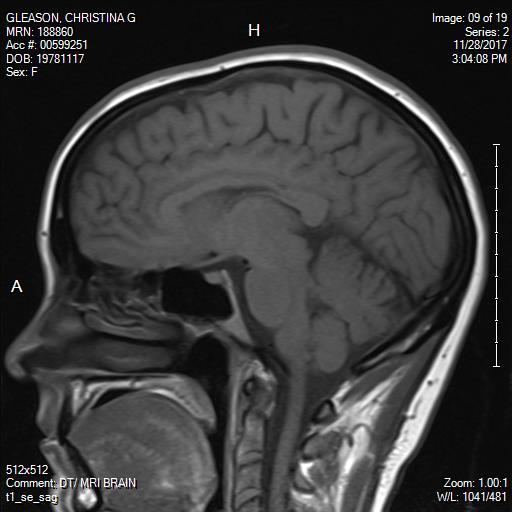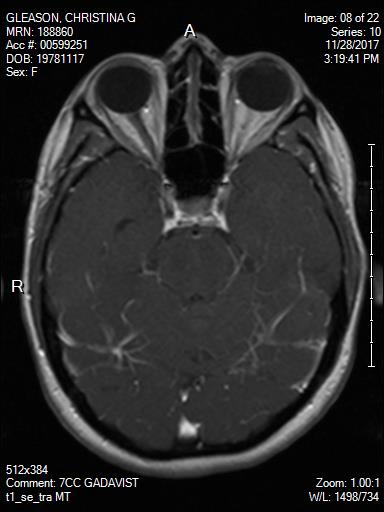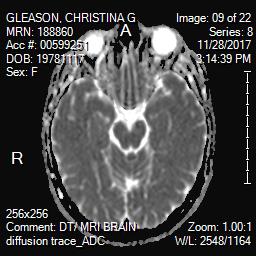I had my follow-up appointment with my new primary care doctor on Wednesday, and we went over all of my assorted test results. The usual tests were all fine, which was weird. Some of the specialized tests I requested were abnormal, and Dr. B confessed that she doesn’t know how to interpret them. Her recommendation was to find a specialist in Boston because there are no specialists in the area who are capable of figuring out my complex medical problems.

Surprisingly Normal Test Results
Ever since I was a teenager, I’ve been anemic. Except now I’m not. My CBC was fine. My ANA was normal, which is bizarre, because the last time it was run, it had a speckled pattern indicating an autoimmune disorder. My blood sugar was fine – 111 – which is good because they watch me like a hawk for diabetes. If it had been a fasting blood test, 111 would apparently be considered high now. But I’d had a pretty big lunch before being tested, so it’s not a problem.
My thyroid was fine, which is good because my mom has thyroid issues and it’s another thing they keep expecting me to have trouble with. I am not deficient in any nutrients. Not that I really thought they would be positive, but I don’t have any of the tick-borne illnesses that could have explained a lot of my symptoms, my complex medical problems.
Platelets were borderline high, but not anything Dr. Bennett was worried about. The lab’s reference range for normal is 150-379, while my platelet count was 392.
My plasma ammonia level was 88, which is only borderline high when the reference range is 19-87. High ammonia levels can be associated with liver problems, especially considering my bouts with confusion and excessive sleepiness. But since it’s such a borderline high, it may mean nothing.
As for my brain MRI, my brain was fine. Nothing to report there. No lesions that would have indicated multiple sclerosis (MS) which would have been a perfectly reasonable explanation for my weakness.
The Weird Results Indicating Complex Medical Problems
At least my doctor is willing to admit when she doesn’t know the answer. There were some tests she ordered only because I asked for them, but she was at a loss to interpret the abnormal results because she wasn’t familiar with their significance. They were, however, some of the tests to check for mitochondrial disease, which is our current working hypothesis. [Update: It was not an accurate hypothesis.]
I had to Google the following abnormally high test results.
ALT (SGPT)
The reference level is 0-32, but my ALT (SGPT) level was 42. ALT (SGPT) is aminotransferase enzyme found primarily in the liver. A high level does not necessarily indicate liver problems, but could be related to muscle damage. And if it does indicate liver problems in my case, the level itself doesn’t correlate with severity or prognosis.
Serine
Serine is the first of three elevated amino acid levels on my lab report. The reference range is 48.7-145.2 but my serine level was 177.5. Serine is involved in metabolizing glucose and fatty acids for energy, as well as making A-G-C-T and providing methyl groups for the methylation process. Actually, serine does an awful lot of things. (See the link at the beginning of this paragraph.)
High levels of serine can increase tumor growth, deplete the body’s epinephrine, and make allergies worse. The allergic reactions it tends to affect interfere with mental function. Additionally, too much serine can be toxic to nerve cells. It has been referred to as the “potentiator of madness.”
Asparagine
Asparagine has a reference range of 29.5-84.5, while my asparagine level was 108.4. It was really hard to find information about what elevated blood levels mean, but I could find out its purpose easily enough. Asparagine helps the body synthesize proteins. When it degrades, it becomes involved in the Krebs cycle. Asparagine is needed for brain development and function. Apropos to my borderline high level mentioned above, asparagine is also involved in the synthesis of ammonia. But none of my cursory online research has indicated what a high level means.
Proline
As it turns out, there a term for elevated proline levels: hyperprolinemia. The reference range is 84.8-352.5, while my proline level was 436.0. Proline is used in the biosynthesis of proteins. Having too much of it generally occurs when the body doesn’t break it down properly, possibly because lactic acid can inhibit the process.
Hyperprolinemia comes in Type I and Type II. Type I is usually asymptomatic, but can result in intellectual disability, seizures, or other neurological or psychiatric problems. Type II involves even higher levels of proline and is far more likely to cause seizures or intellectual disability. It can be associated with genetic mutations in the ALDH4A1 and PRODH genes. I could only find one heterozygous mutation that I possess on SNP rs4819756, for which I am A/G. (23andMe didn’t provide data on many of the other SNPs associated with hyperprolinemia.)
Increased FLAIR Signal in My Right Optic Nerve
While my brain MRI showed nothing was wrong with my brain, it did show “an area of increased FLAIR signal within the right optic nerve.” I looked at the disc of my MRI and think I could see where they spotted this. My report says that it might represent “volume averaging” but cannot exclude the possibility of FLAIR hyperintense plaques/lesions. The radiologist recommended an orbital MRI for further evaluation, so Dr. B wants me to get in touch with my new ophthalmologist so that he can order the new MRI. Dr. Blso has no idea what this might indicate, as eyes are not her specialty.

My attempts at online research returned the possibility of optic neuritis, but it might not be the case. I do fit the demographics though: white lady under 40. Optic neuritis is often associated with multiple sclerosis, but so is a condition called neuromyelitis optica, which is inflammation of the optic nerve and spinal cord and doesn’t cause nerve damage in the brain as often as MS does. I’m wondering if this could be related to the floaters the ophthalmologist saw when looking at my eyes but that I haven’t really noticed. (P.S. I’m getting glasses for distance vision. I can pass a driving test without them, but barely.)

How to Solve My Complex Medical Problems
As I said in the beginning, I’m not getting any answers locally. I’m going to see a pain management specialist this month so that I can say I’ve exhausted my options here. After that, Dr. B’s office will argue my case with my insurance company to see a specialist of my choosing at the Boston research hospital of my choosing. That means that I need to research doctors in Boston who specialize in complex medical problems like mitochondrial disease. (If you happen to know of one, please let me know in the comments! I know that’s a long shot though.) I have Dr. B a list of all the doctors I’ve seen in our area, or at least their specialties when I couldn’t remember their names, so she can use them all as ammunition for getting my insurance company to approve treatment in Boston.
To be fair, she said that I could also find a specialist in New York City, but the doctors in NYC generally insist on patients returning to see them in person for treatment, while the doctors in Boston are more willing to work with patients’ local doctors to manage their recommended treatment regimens. Dr. B has one patient with mitochondrial disease, and she manages her treatment. This patient’s treatment involves a PIC line and IV infusions. That’s not exactly something I want to have, but if it turns out that I will feel better doing so? I’ll have to learn to live with it.
We’re still not sure it is mitochondrial disease, but it’s the thing that makes the most sense right now. I’ll leave it to my future Boston specialist to make the proper diagnosis, whatever it may be.
Read my Big Fat Medical Update for more details.